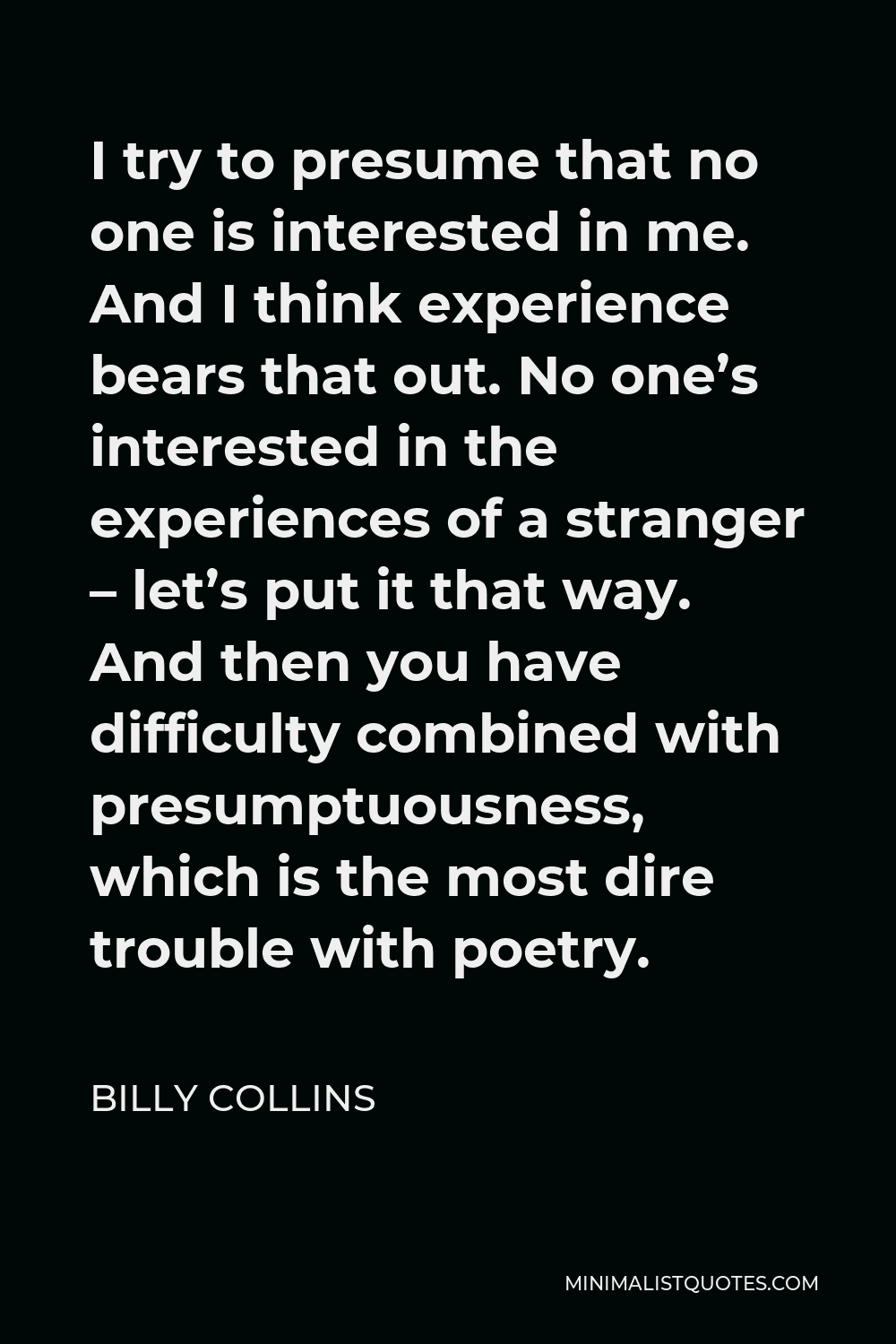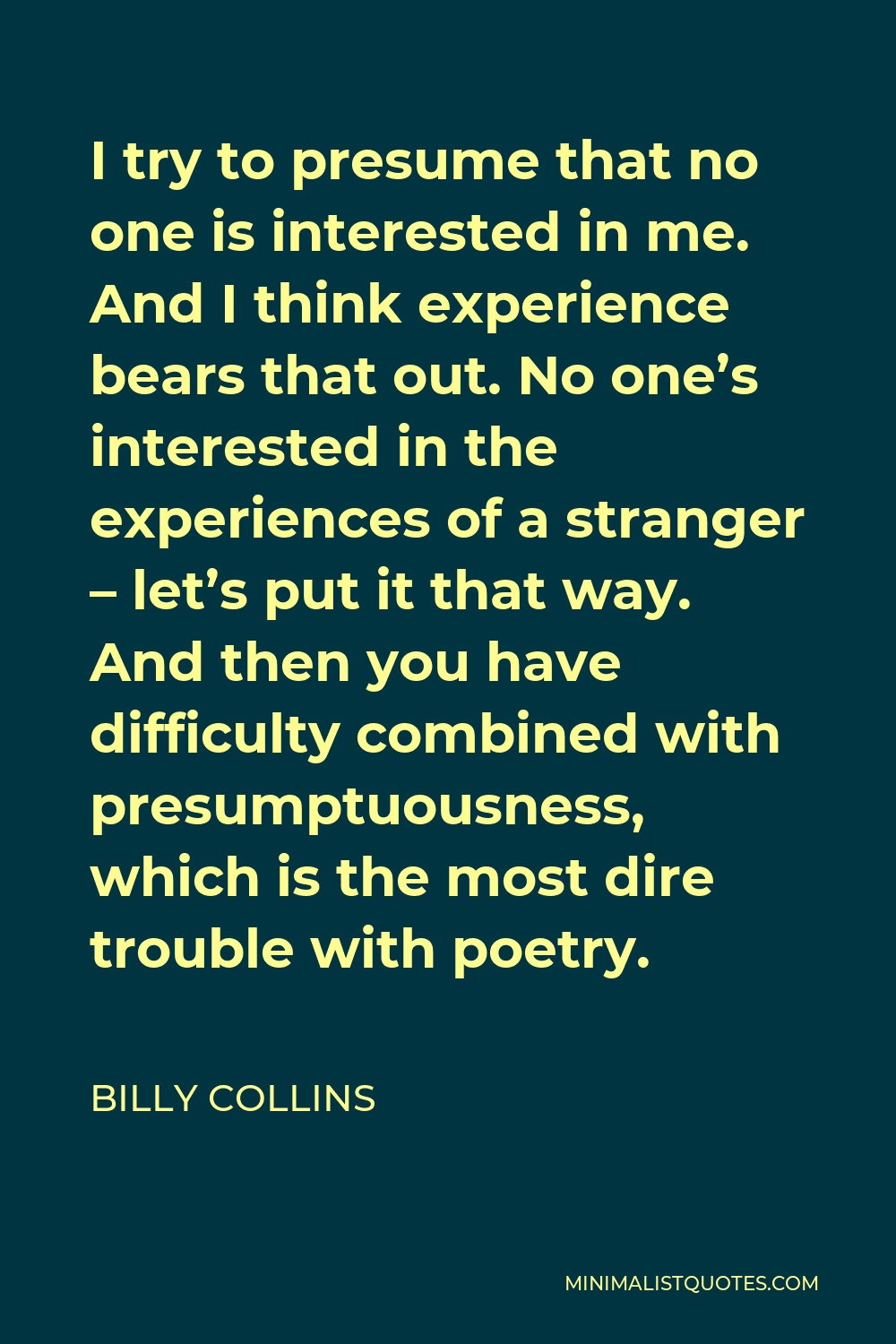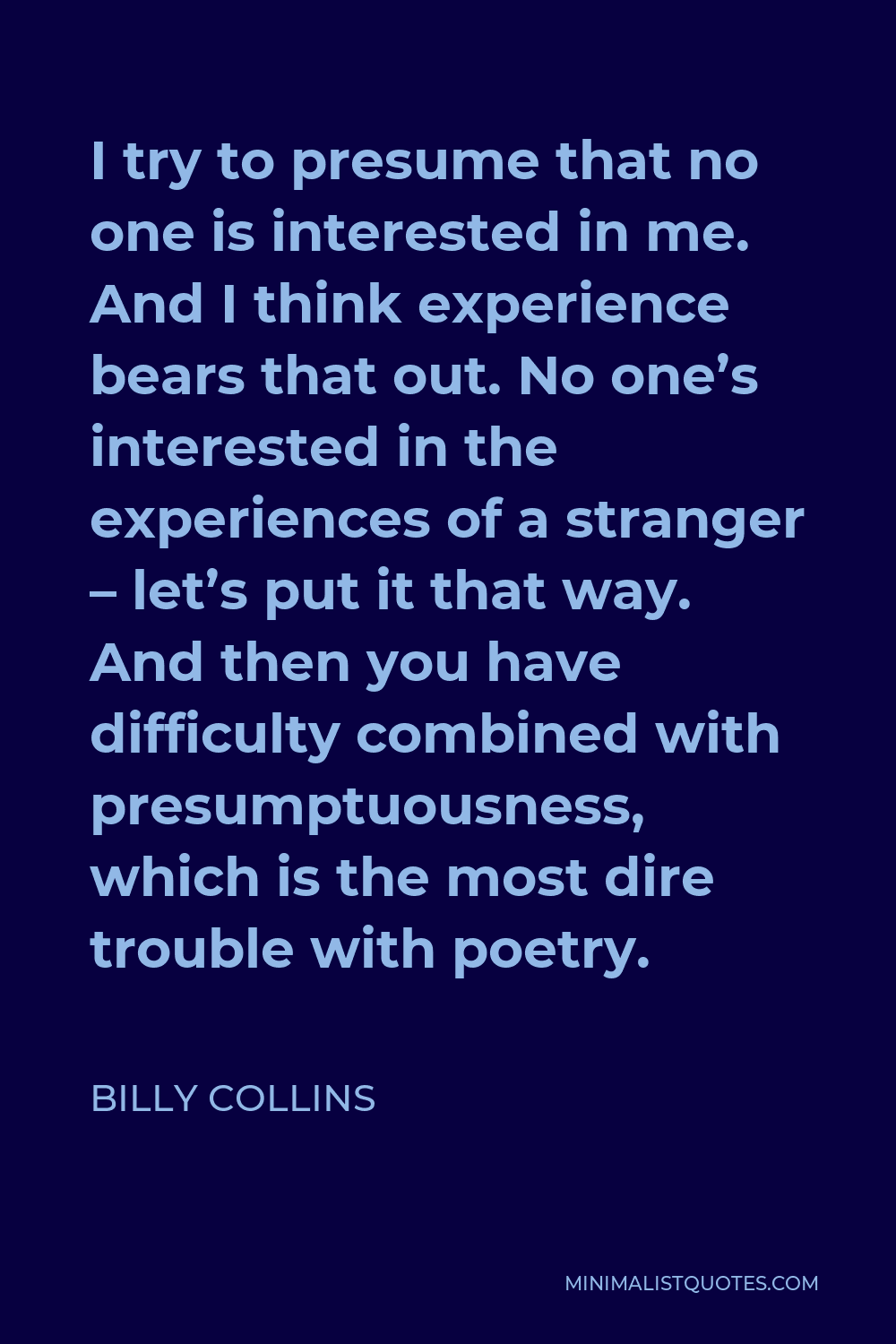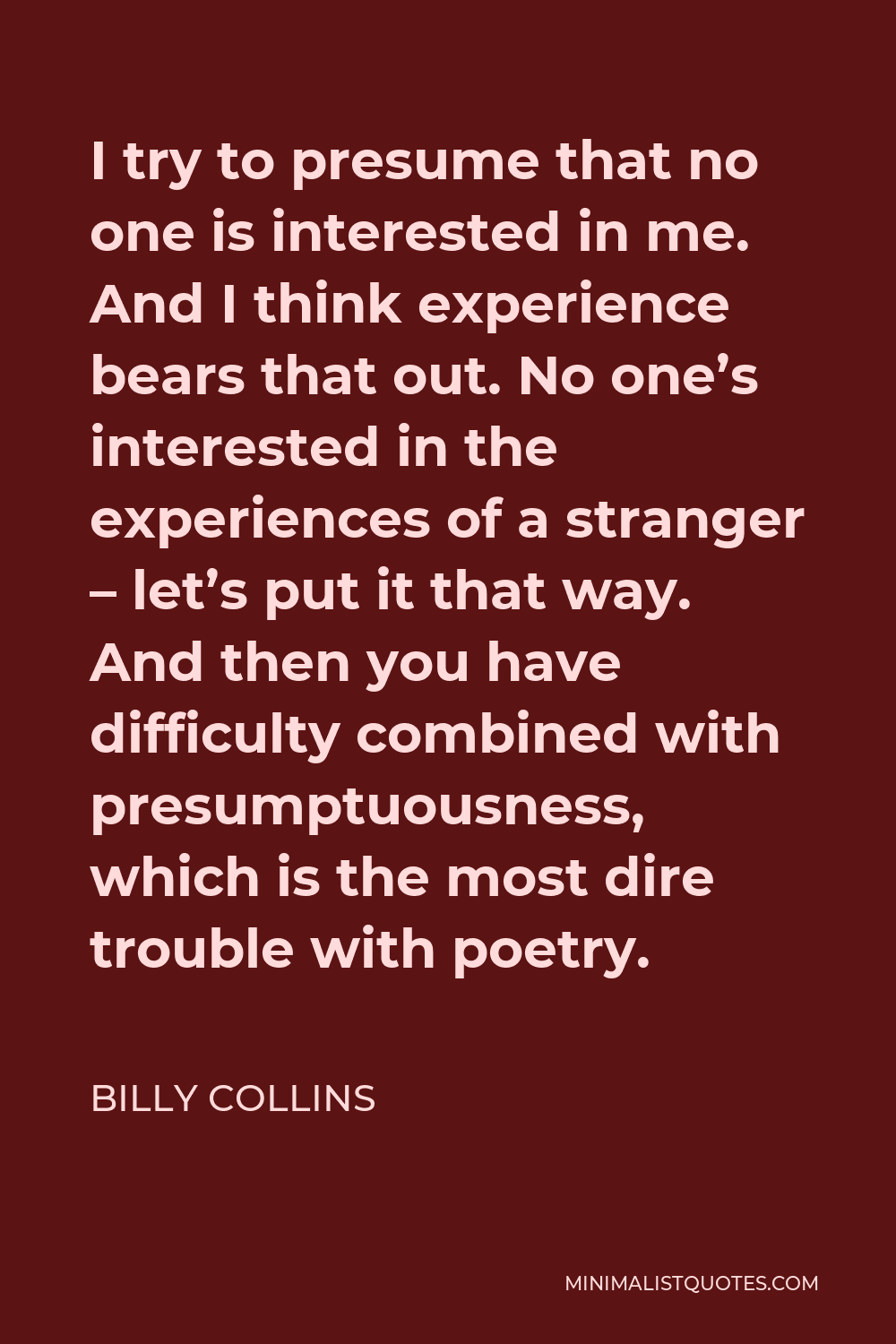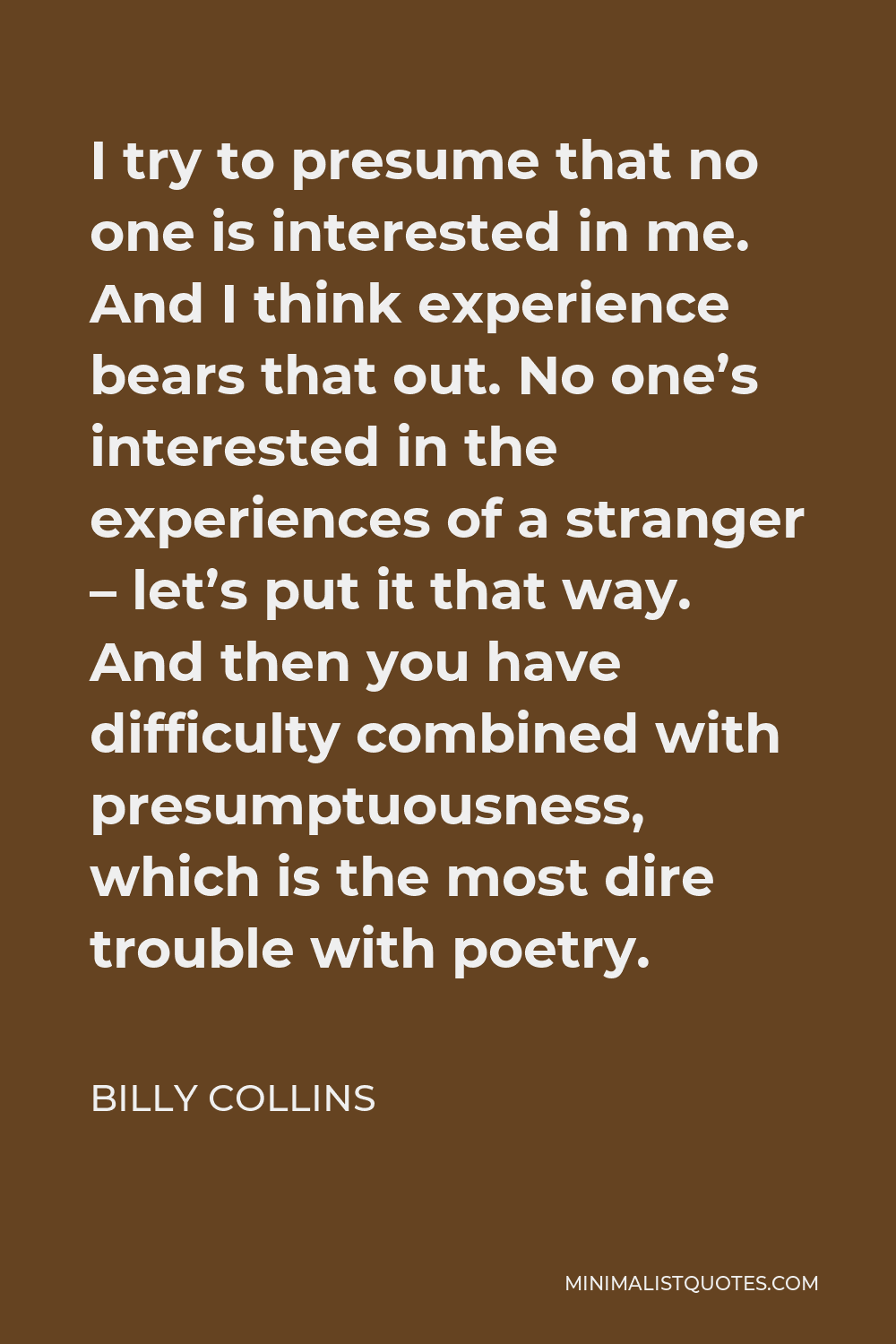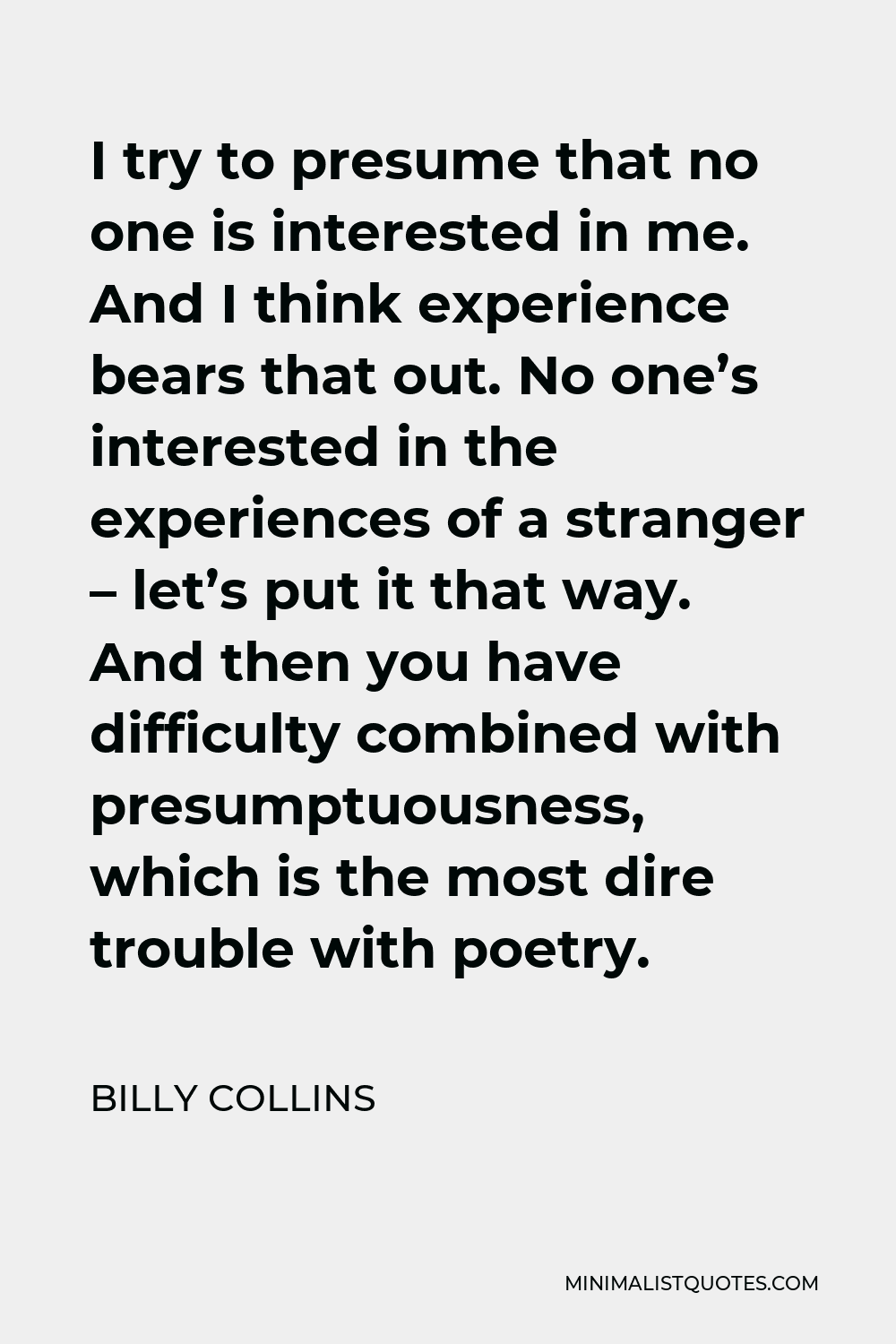The sense you get in a poem that the poet takes for granted an interest on the reader’s part in the poet’s autobiographical life, in the poet’s memories, problems, difficulties and even minor perceptions.
BILLY COLLINSI try to presume that no one is interested in me. And I think experience bears that out. No one’s interested in the experiences of a stranger – let’s put it that way. And then you have difficulty combined with presumptuousness, which is the most dire trouble with poetry.
More Billy Collins Quotes
-





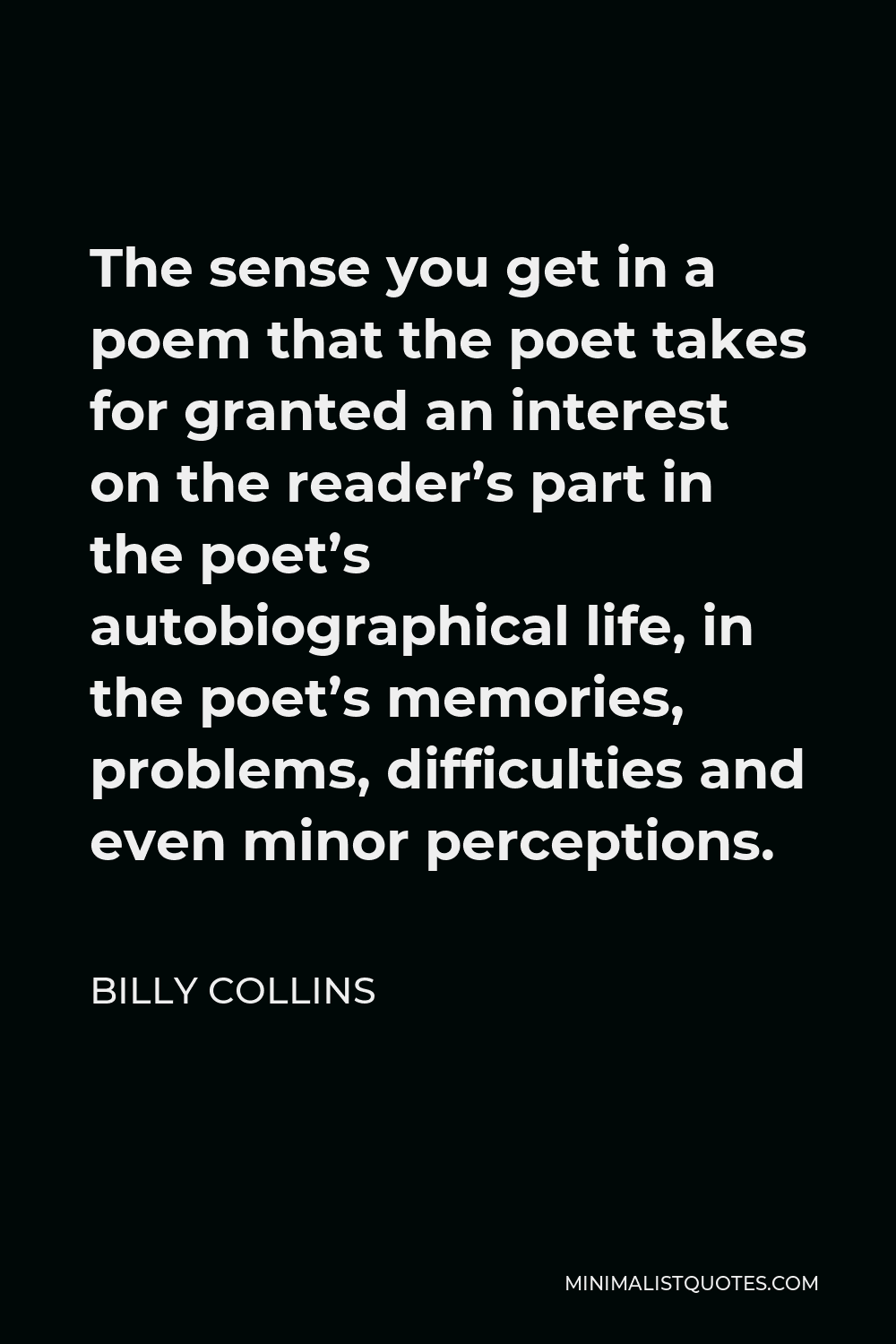
-





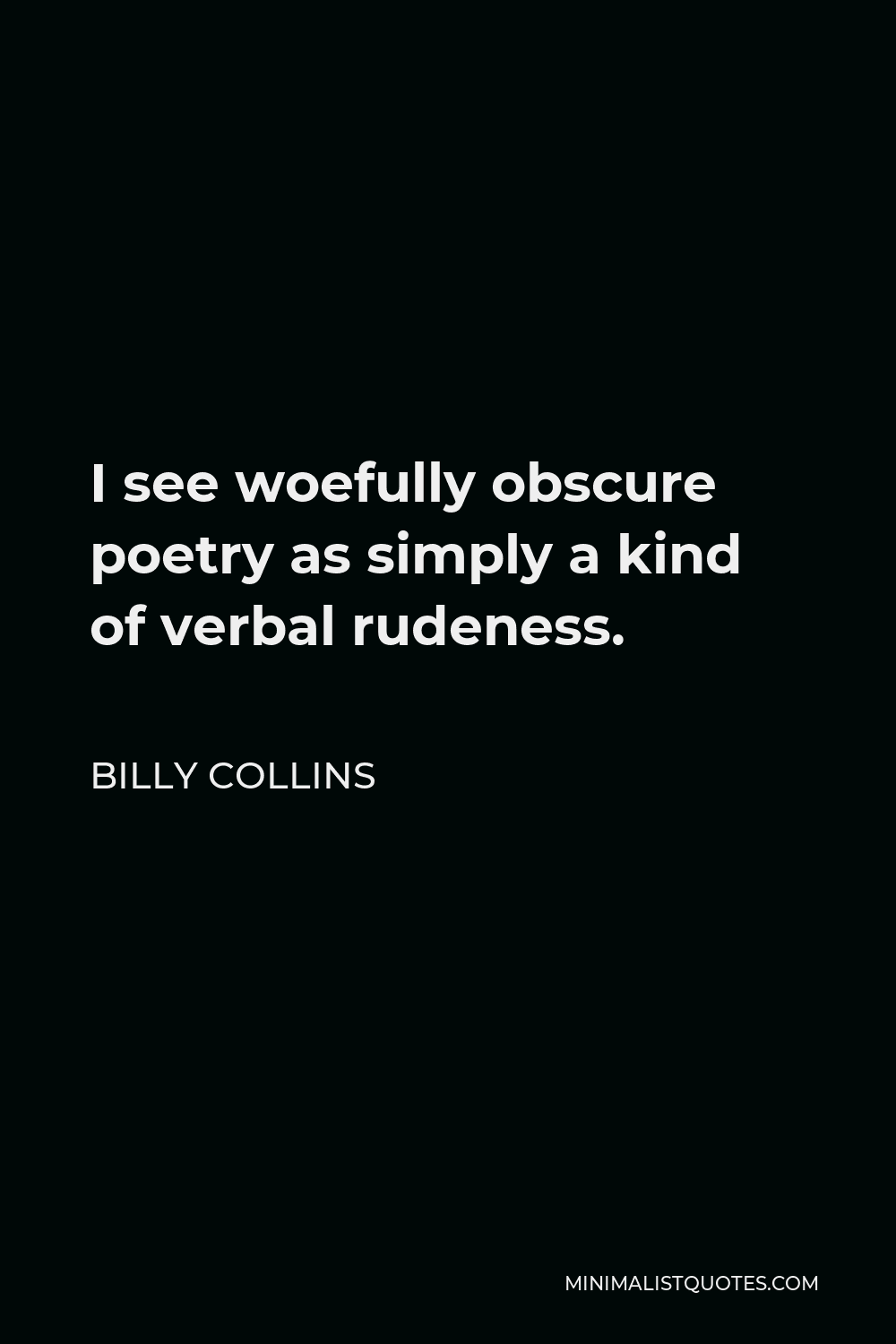
I see woefully obscure poetry as simply a kind of verbal rudeness.
BILLY COLLINS -





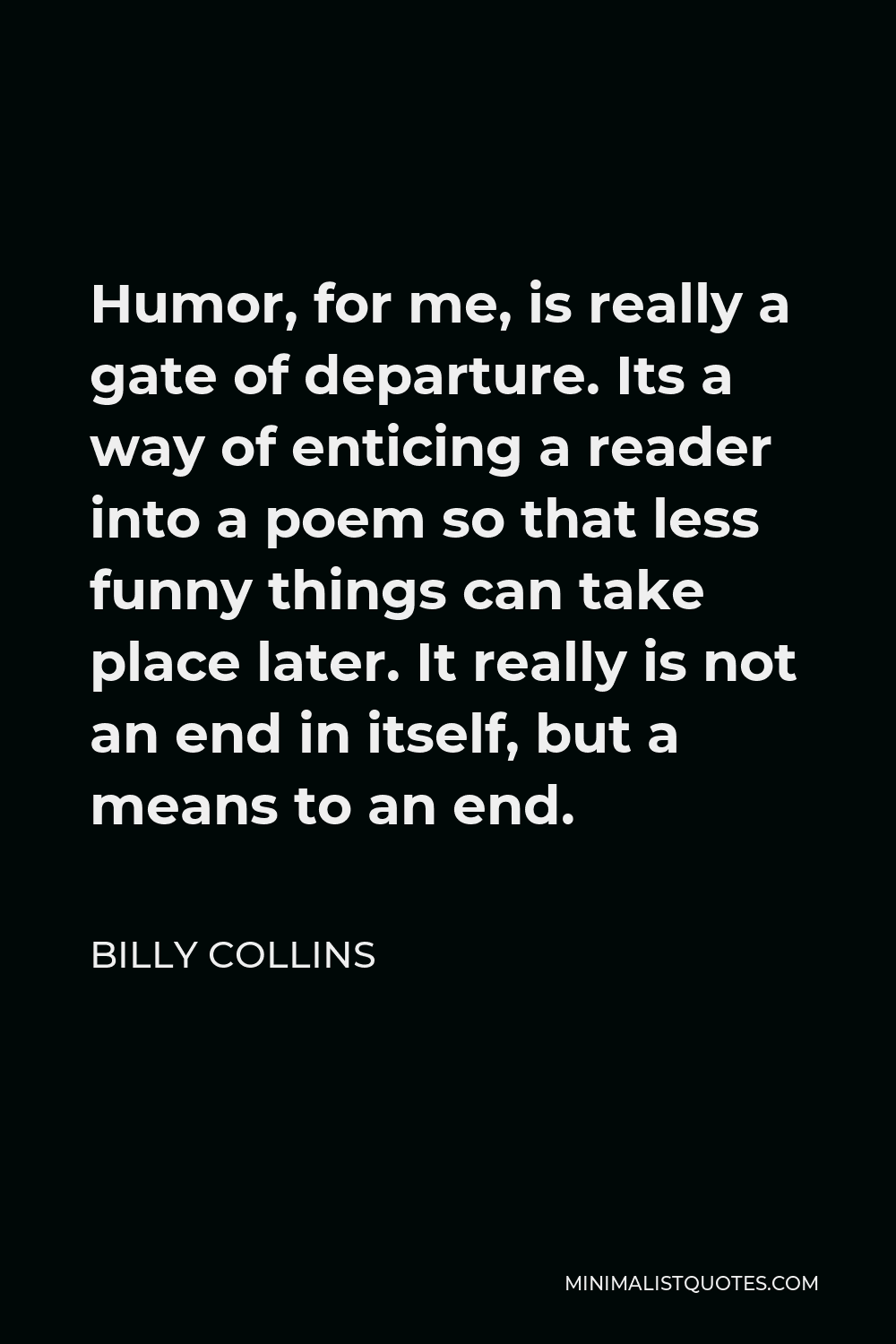
Humor, for me, is really a gate of departure. Its a way of enticing a reader into a poem so that less funny things can take place later. It really is not an end in itself, but a means to an end.
BILLY COLLINS -





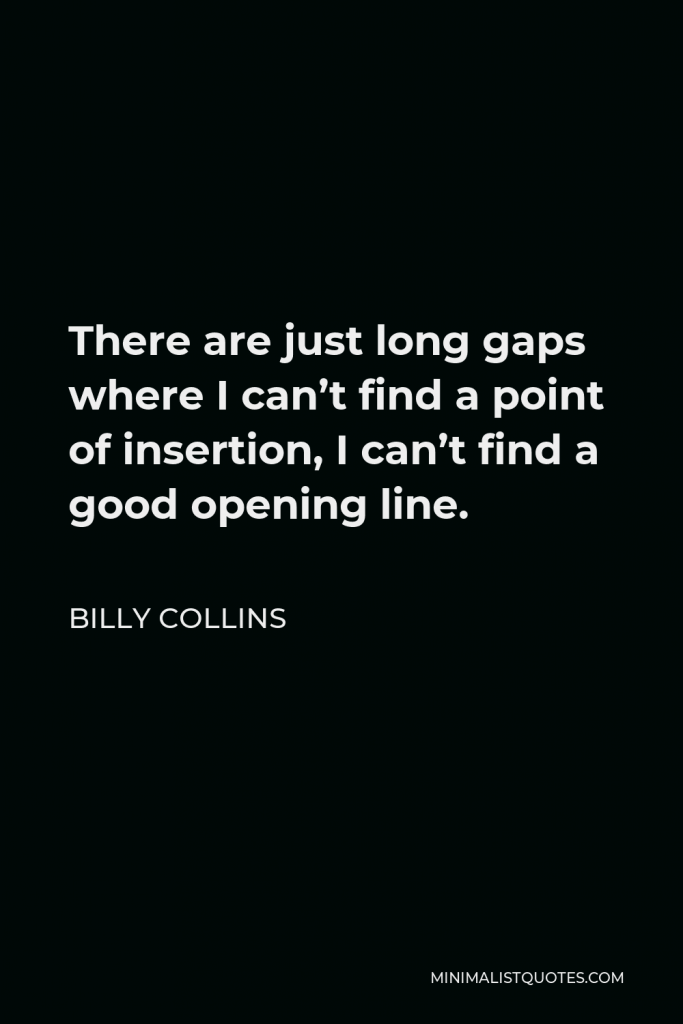

There are just long gaps where I can’t find a point of insertion, I can’t find a good opening line.
BILLY COLLINS -





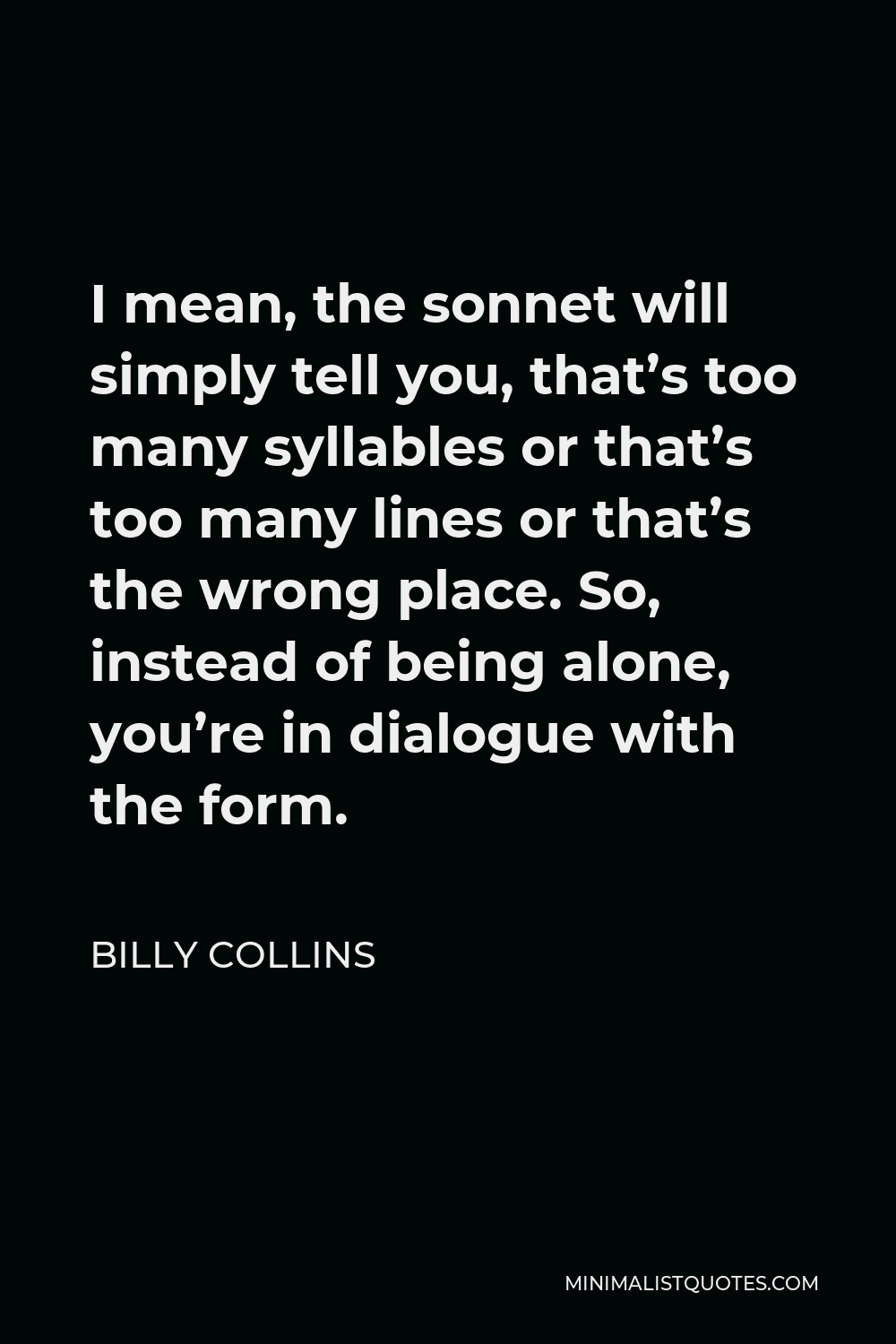
I mean, the sonnet will simply tell you, that’s too many syllables or that’s too many lines or that’s the wrong place. So, instead of being alone, you’re in dialogue with the form.
BILLY COLLINS -





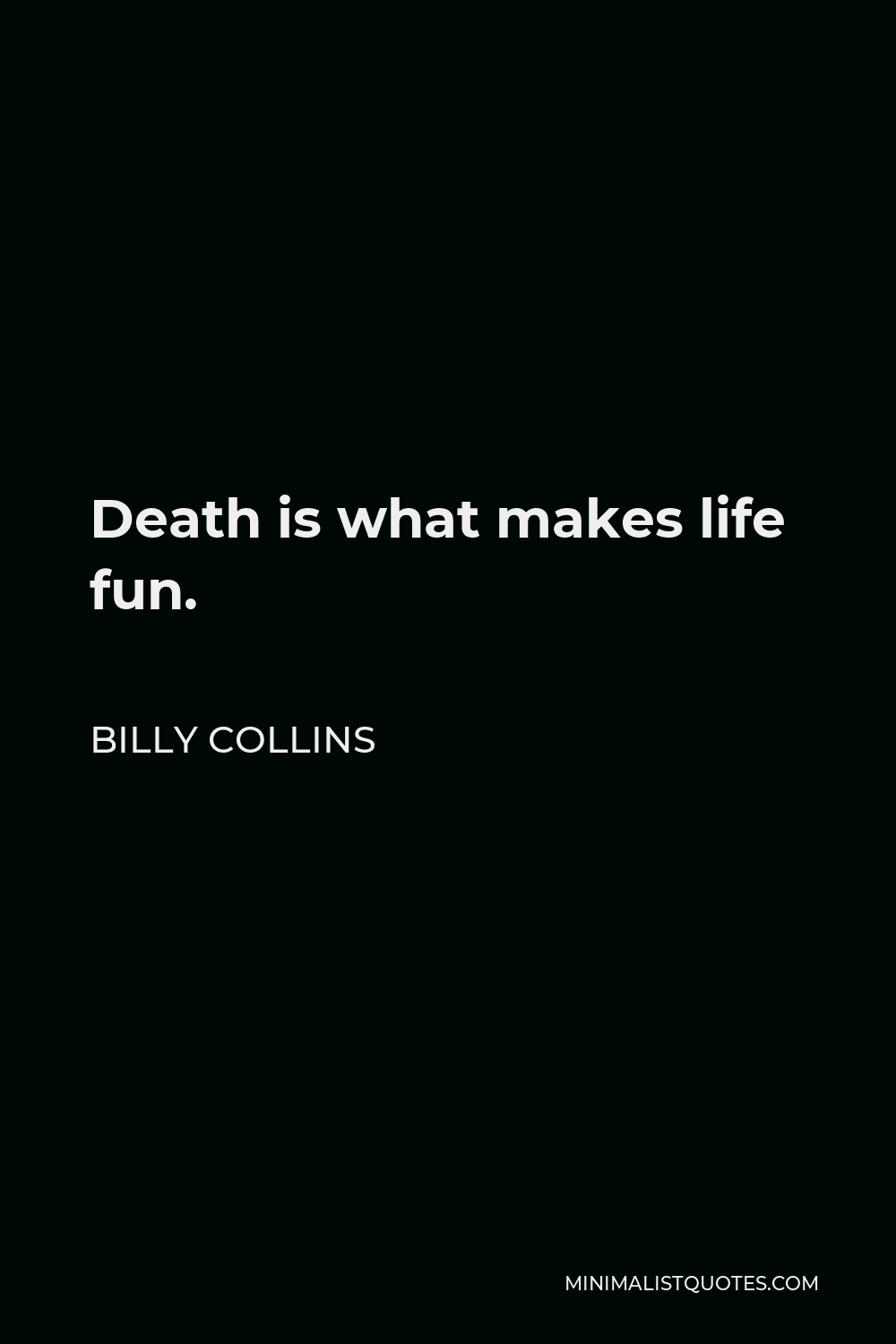
Death is what makes life fun.
BILLY COLLINS -





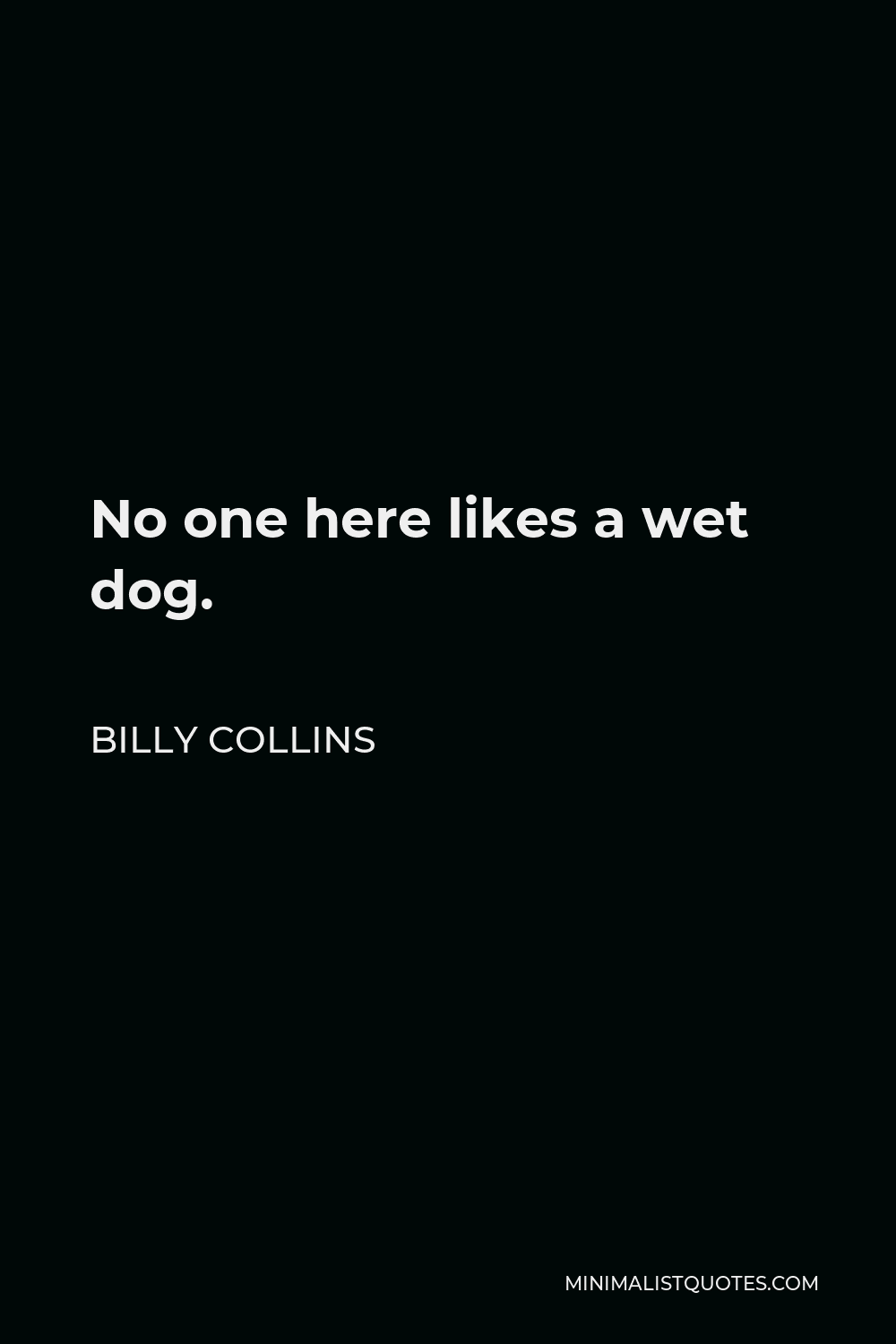
No one here likes a wet dog.
BILLY COLLINS -





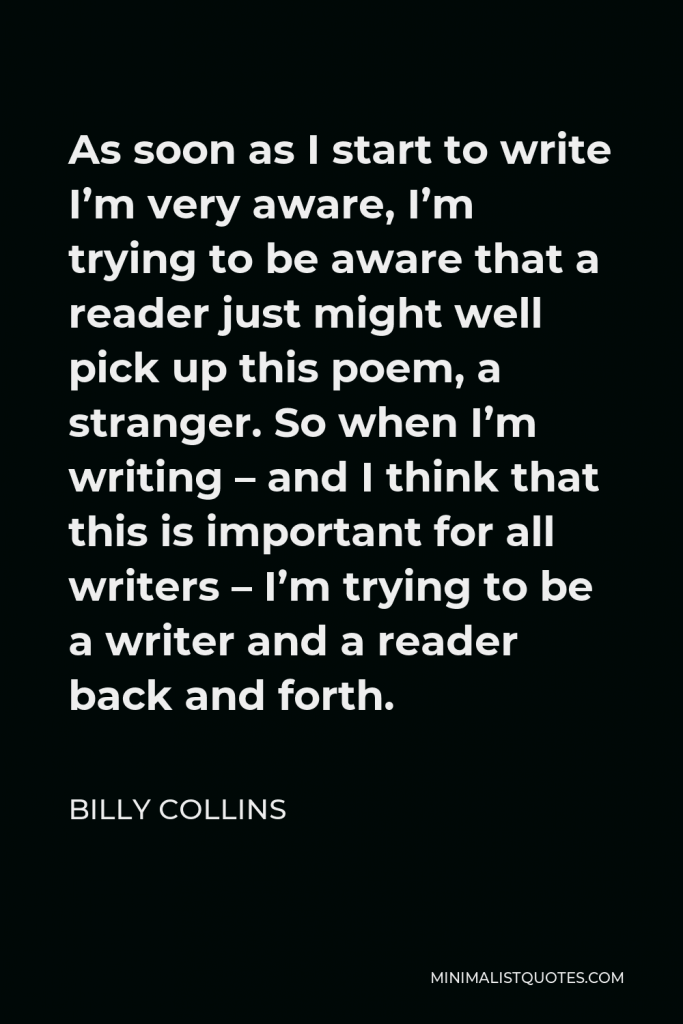

As soon as I start to write I’m very aware, I’m trying to be aware that a reader just might well pick up this poem, a stranger. So when I’m writing – and I think that this is important for all writers – I’m trying to be a writer and a reader back and forth.
BILLY COLLINS -





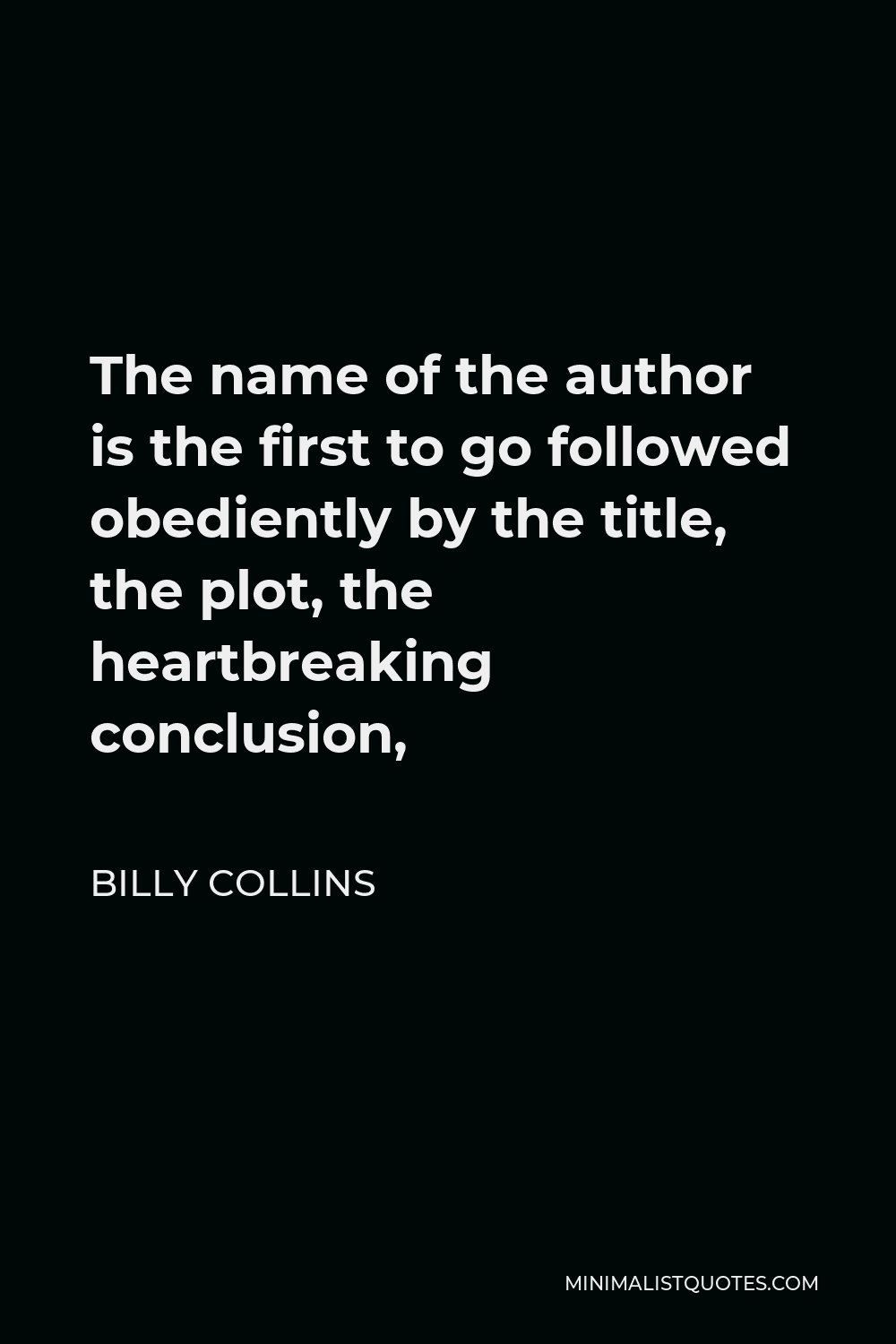
The name of the author is the first to go followed obediently by the title, the plot, the heartbreaking conclusion,
BILLY COLLINS -





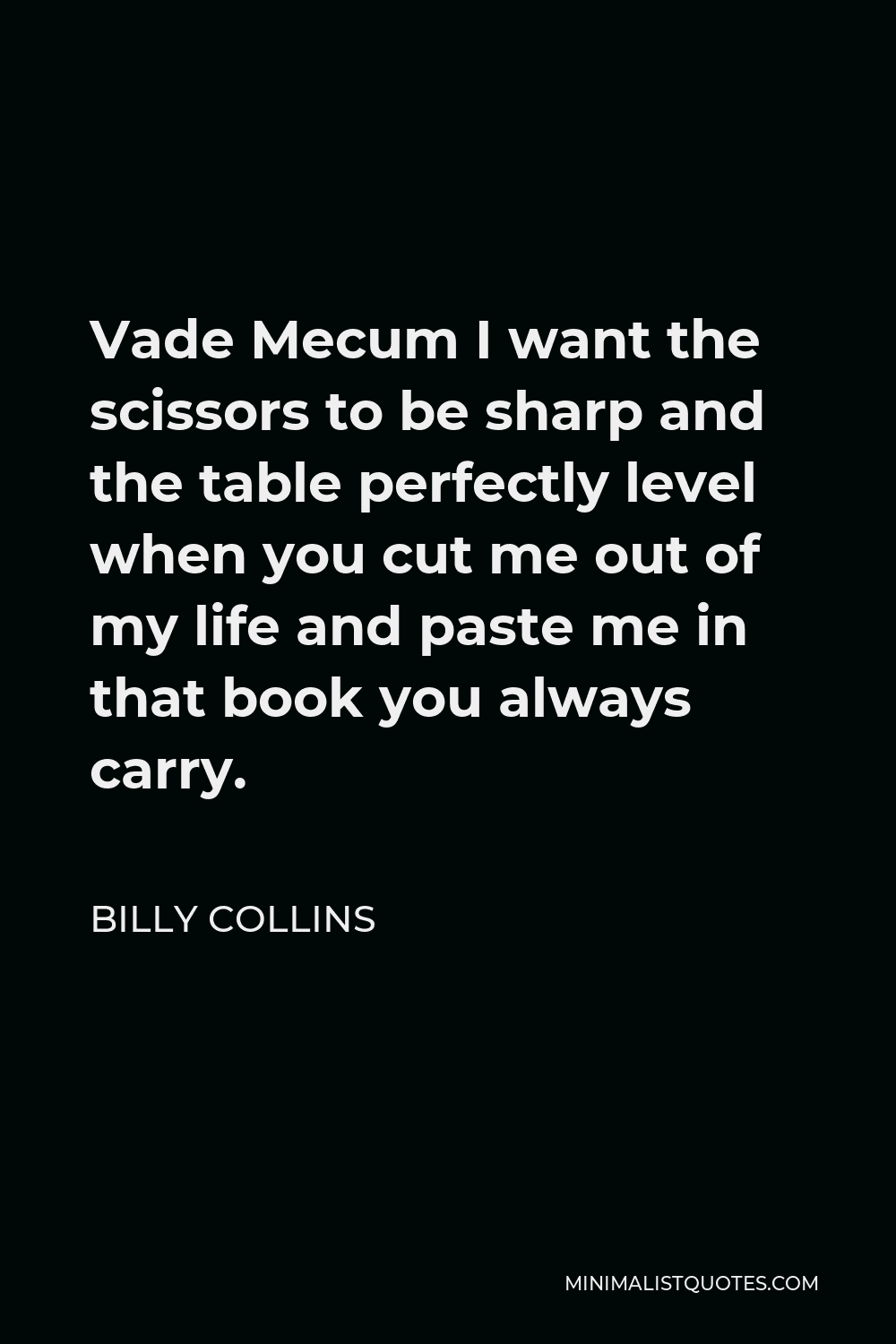
Vade Mecum I want the scissors to be sharp and the table perfectly level when you cut me out of my life and paste me in that book you always carry.
BILLY COLLINS -





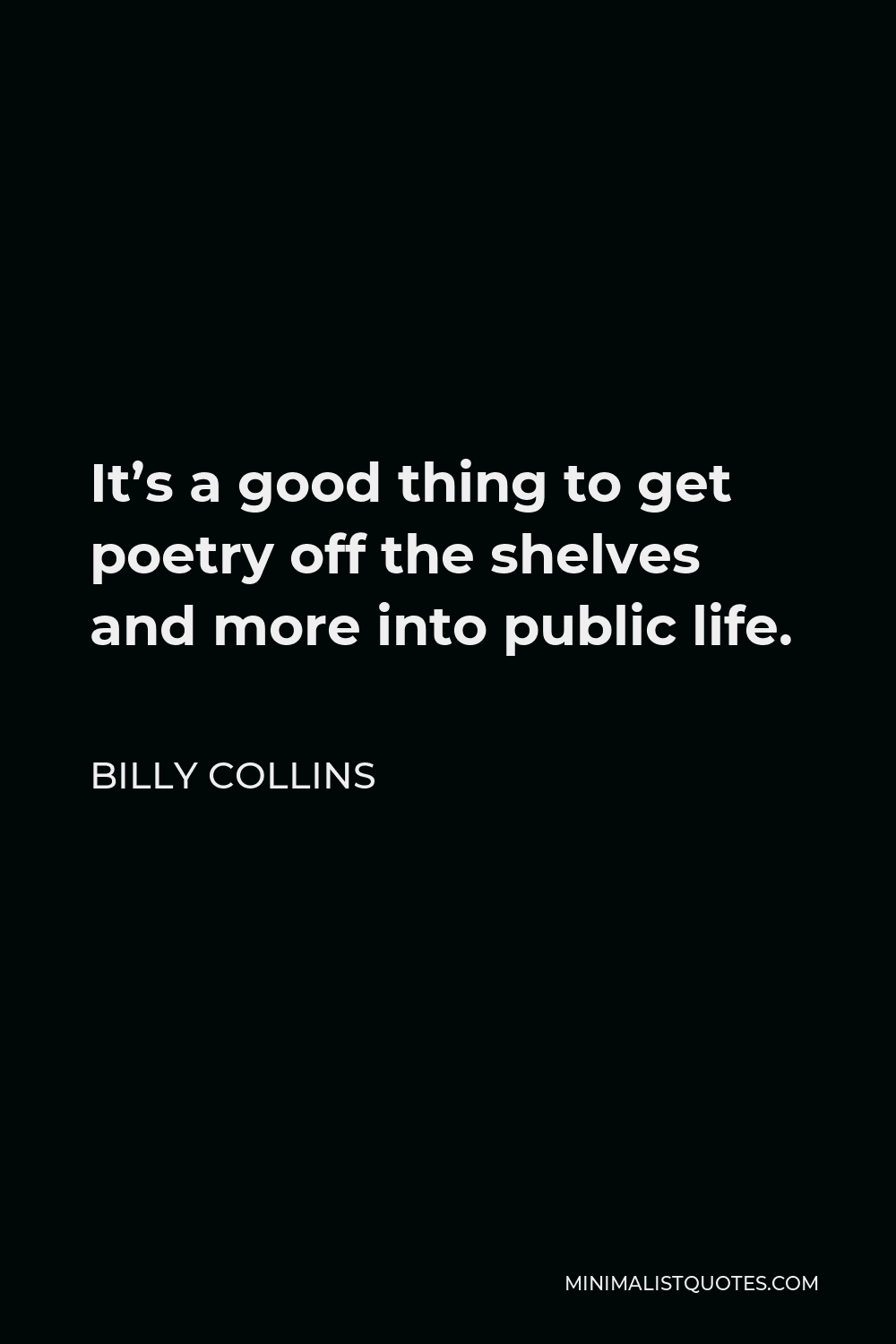
It’s a good thing to get poetry off the shelves and more into public life.
BILLY COLLINS -





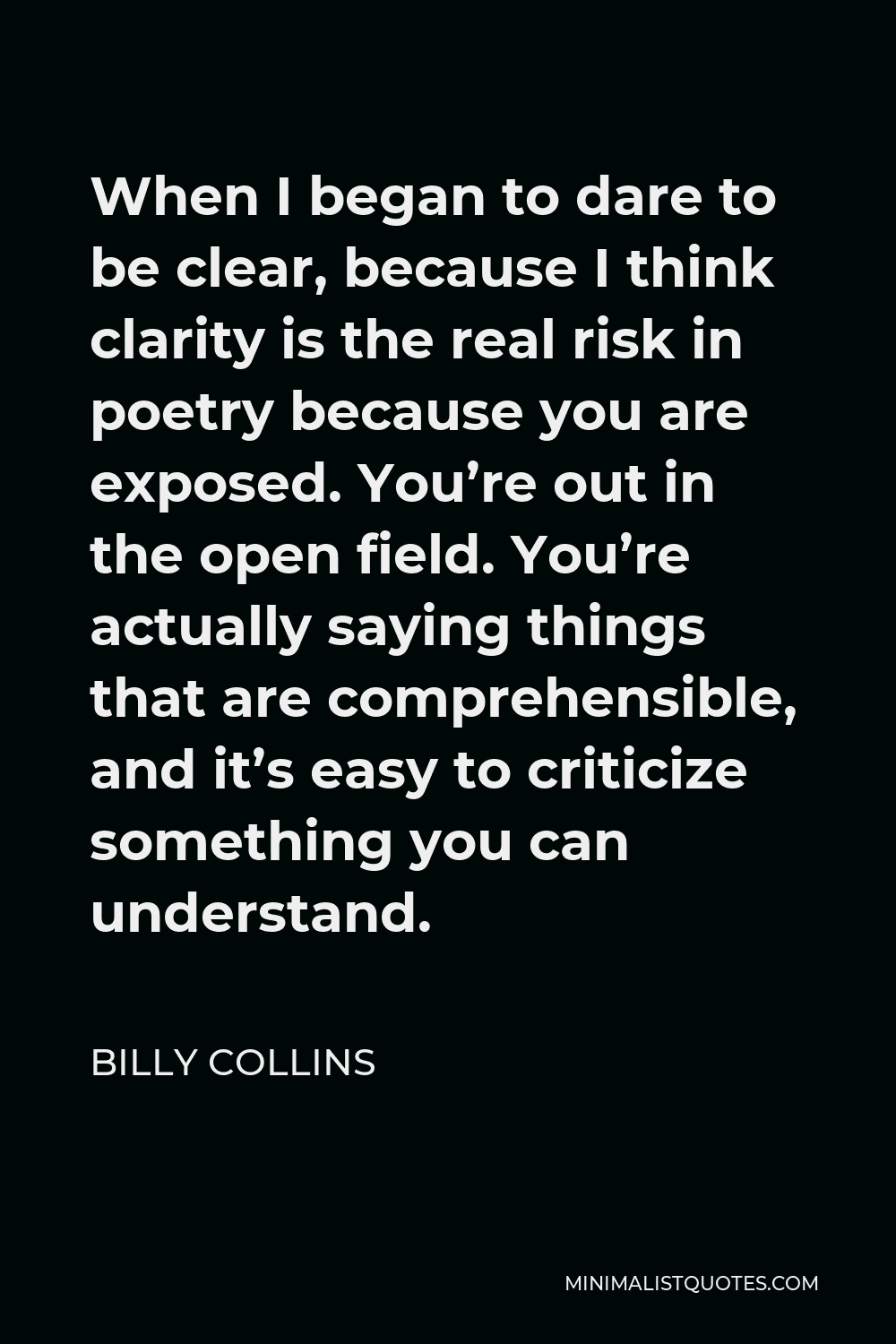
When I began to dare to be clear, because I think clarity is the real risk in poetry because you are exposed. You’re out in the open field. You’re actually saying things that are comprehensible, and it’s easy to criticize something you can understand.
BILLY COLLINS -





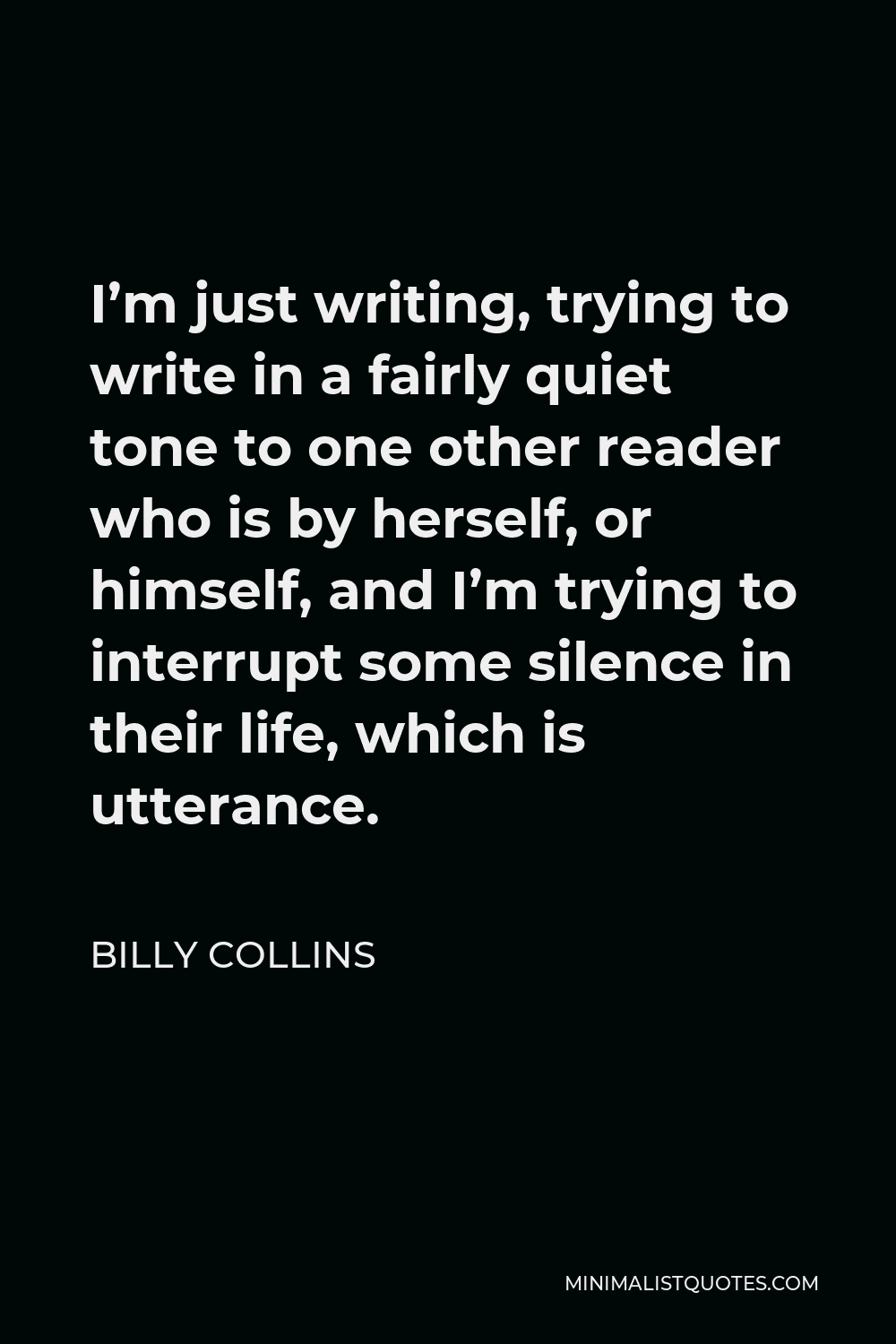
I’m just writing, trying to write in a fairly quiet tone to one other reader who is by herself, or himself, and I’m trying to interrupt some silence in their life, which is utterance.
BILLY COLLINS -





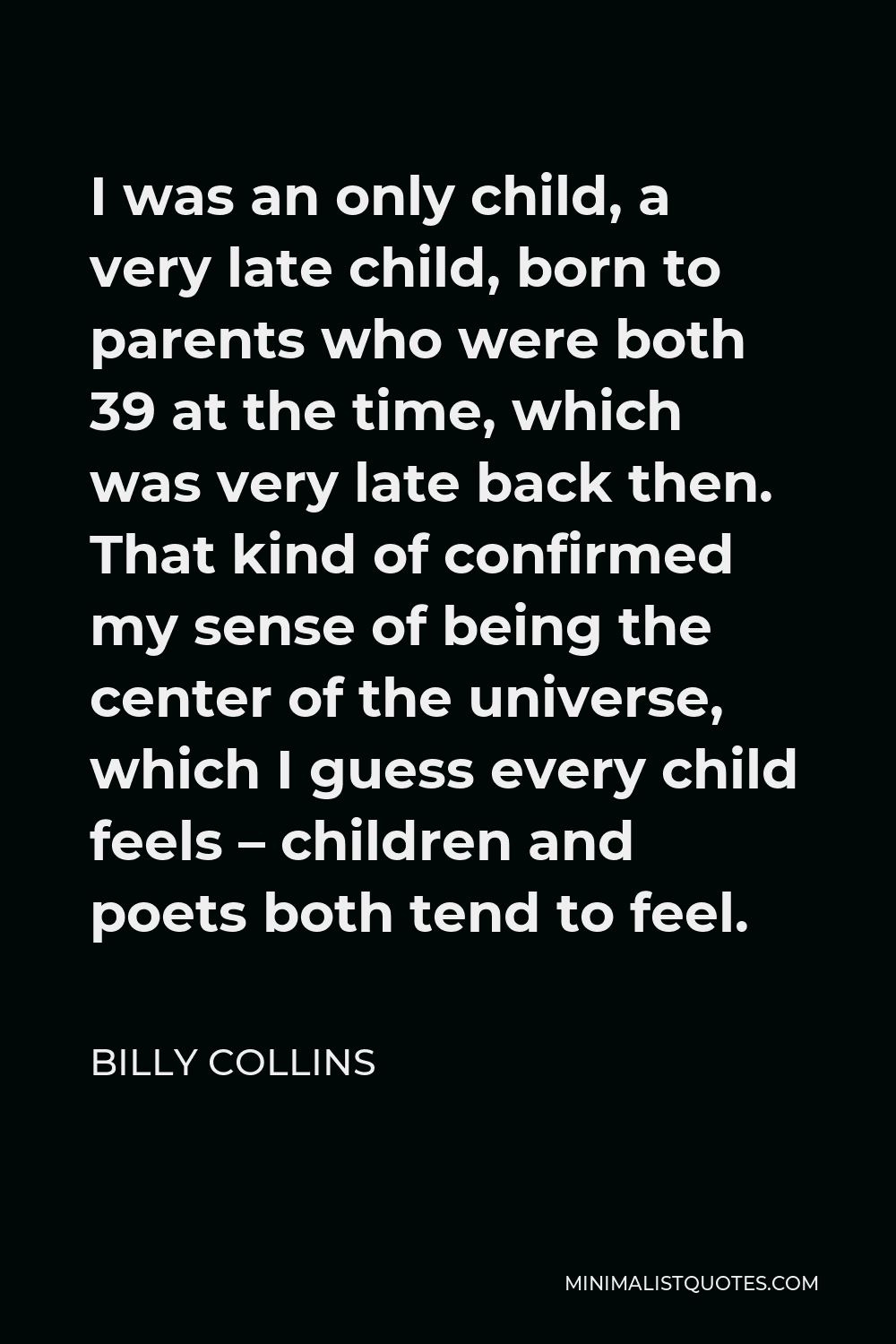
I was an only child, a very late child, born to parents who were both 39 at the time, which was very late back then. That kind of confirmed my sense of being the center of the universe, which I guess every child feels – children and poets both tend to feel.
BILLY COLLINS -





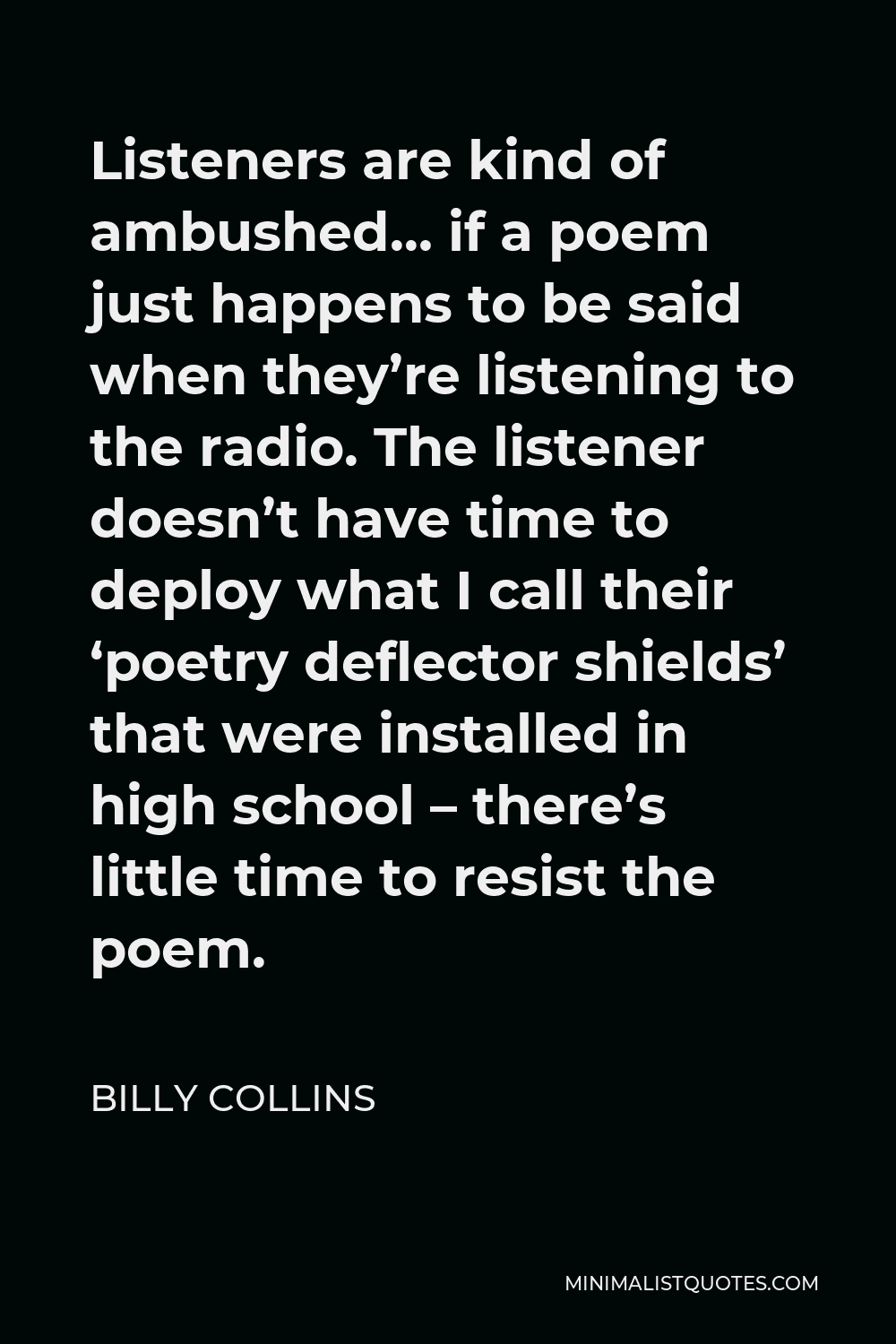
Listeners are kind of ambushed… if a poem just happens to be said when they’re listening to the radio. The listener doesn’t have time to deploy what I call their ‘poetry deflector shields’ that were installed in high school – there’s little time to resist the poem.
BILLY COLLINS -





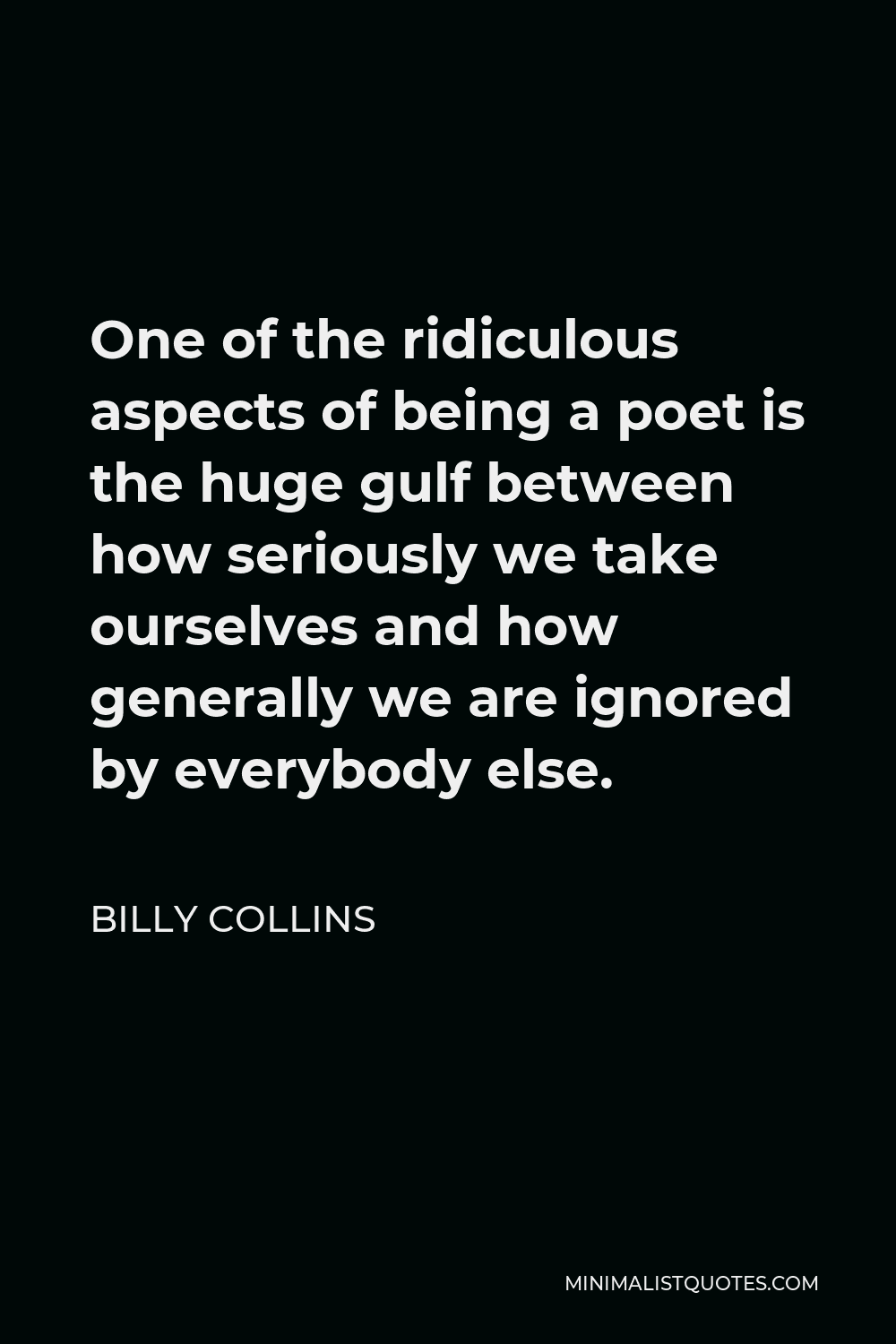
One of the ridiculous aspects of being a poet is the huge gulf between how seriously we take ourselves and how generally we are ignored by everybody else.
BILLY COLLINS
